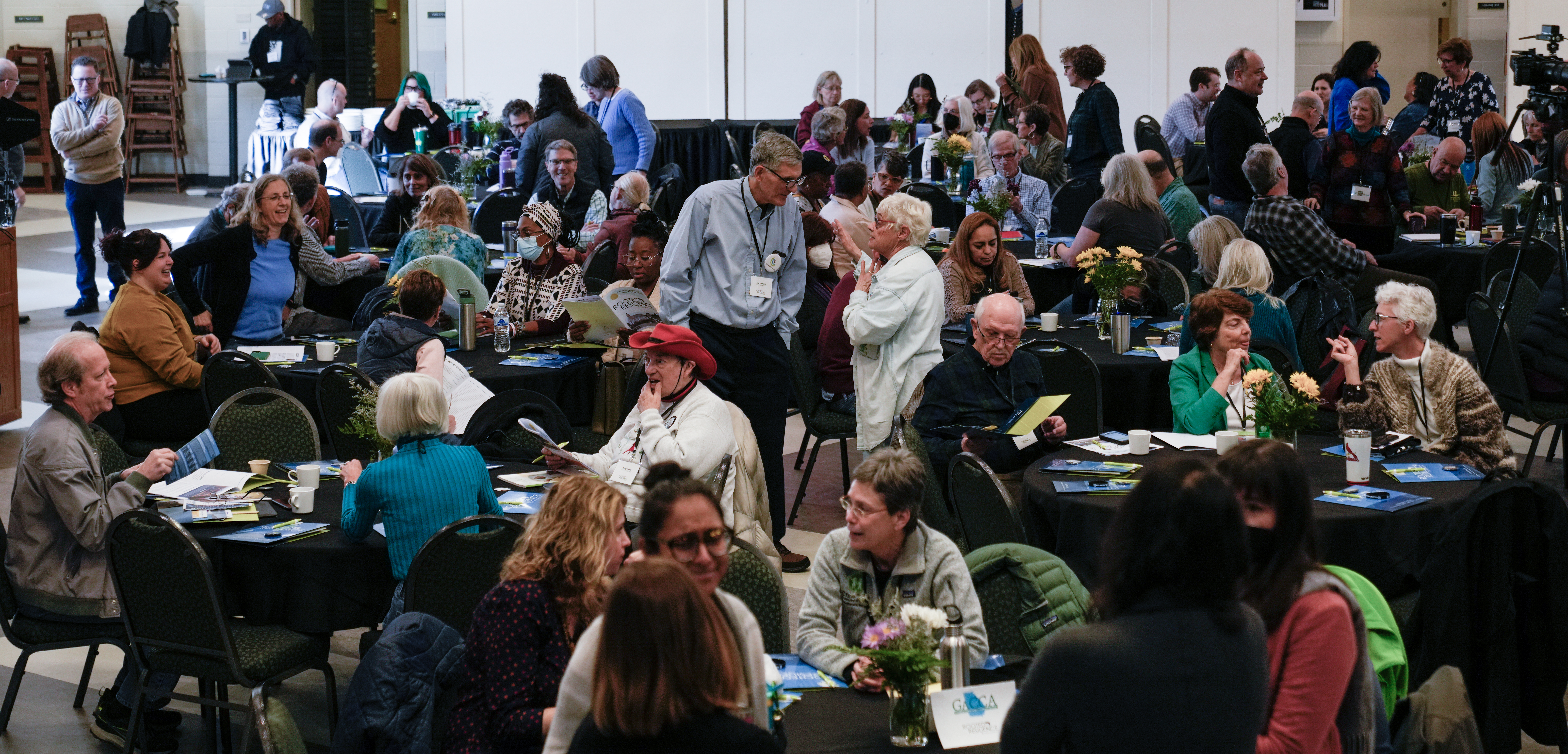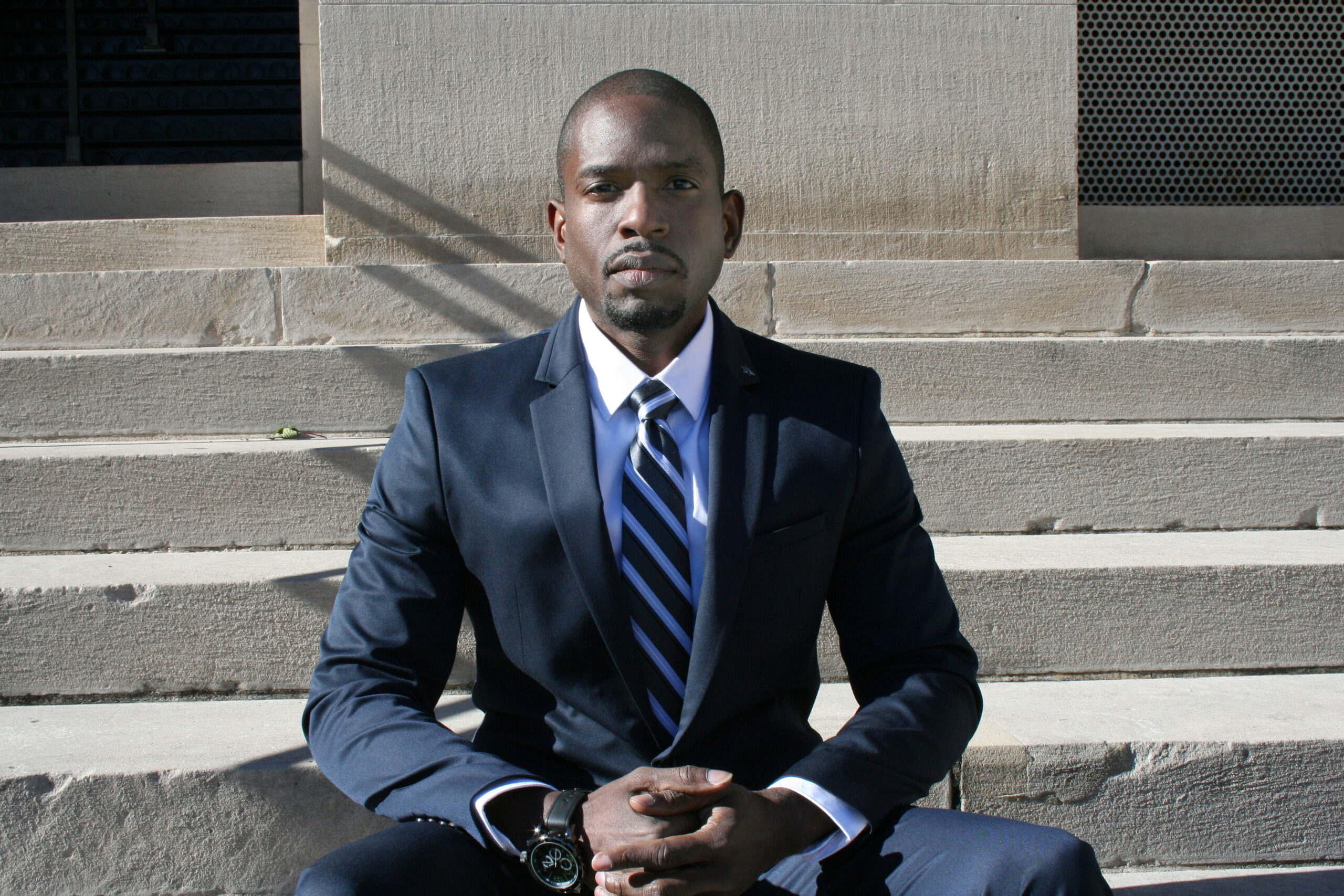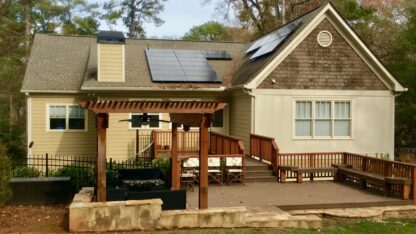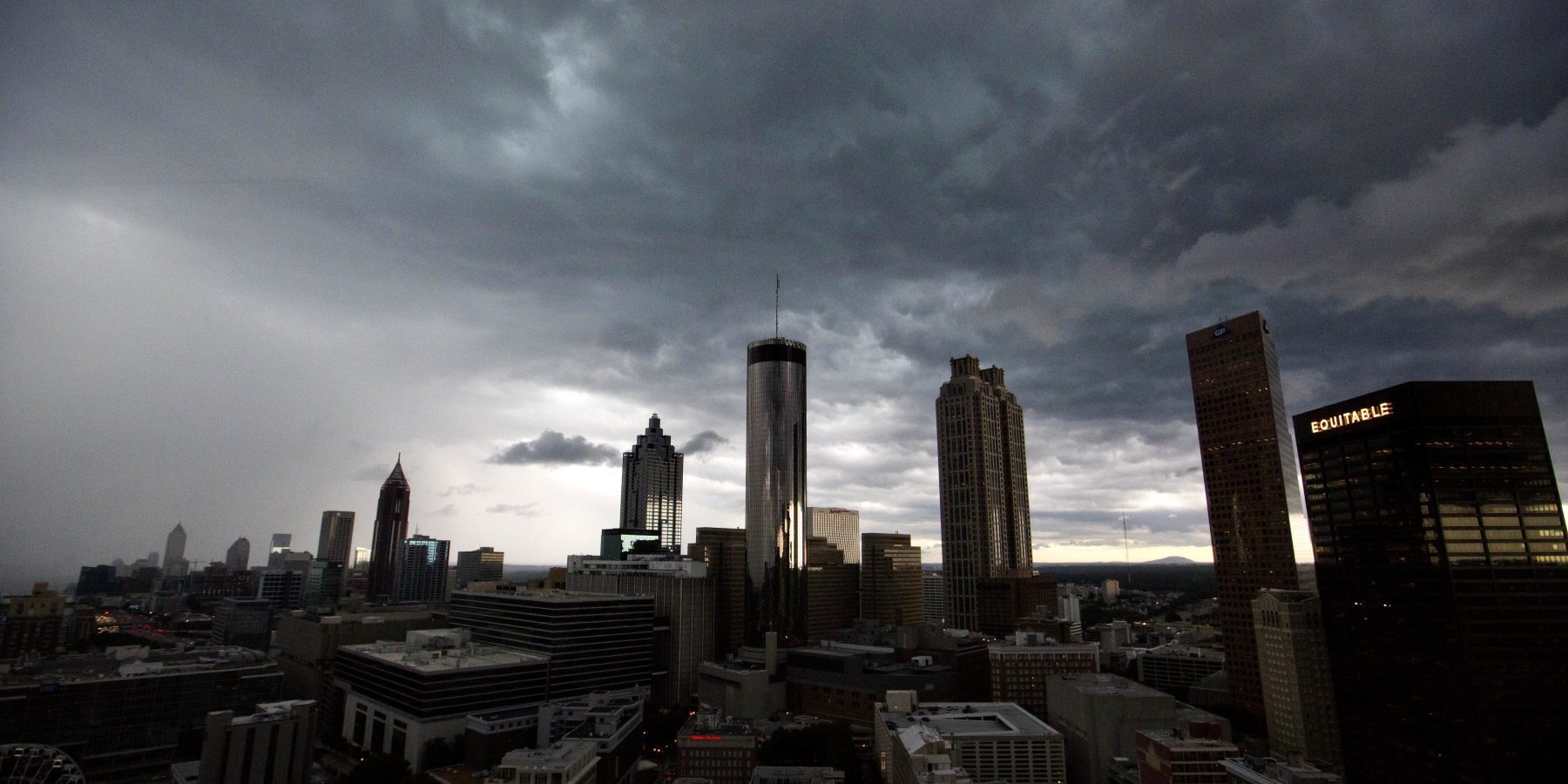For Georgians of faith looking to impact climate issues, groups are popping up around the state in congregations of all faiths.
Community members of faith organizations across Georgia met at Oak Grove Methodist Church in Decatur on Feb. 3 for Georgia Interfaith Power and Light’s (GIPL) Green Team summit.
Keynote Speaker and professor at Calvin University, Debra Rienstra, has written books on subjects ranging from motherhood to whatever the pamphlet said. She spoke to the crowd about refugia, a biological term for small alcoves where life is tucked away, surviving and thriving during and after destruction.
When it comes to faith and environmentalism, she cited a troubling reality check from the Pew Research Center.
“They found that according to their, you know, sampling, only 8% of all Americans are both highly religious and highly concerned about climate change,” Rienstra said.
“But one of the things they also discovered is that people are not talking about this in their faith communities — so you have a lot of faithful people hand-wringing quietly and in lonely spaces, and not talking about it, not making those connections to their faith life.”
But that’s what GIPL’s Green Teams are all about. Protecting and stewarding the environment are tenets across many different religions, but not many houses of faith have programming or projects that tap into the theme. Through the Green Teams, GIPL provides structure, information and resources for congregation members to organize within their houses of worship.
Several of the congregations attending the conference were recipients of Power-Wise awards, highlighting congregations that exhibit excellence in energy efficiency while embracing new sustainable practices.
GIPL connects organizations with resources, including programs and grants like the Power-Wise program, which audits congregation energy efficiency, builds custom-tailor plans for upgrades, and consultations eligibility to apply for matching grants.
Aside from energy efficiency, GIPL also works with Green Teams on its programs focusing on water use, solar panel access and installation and waste reduction through technical assistance and funding opportunities.
The conference featured workshops focusing on these projects and how Green Teams can pursue them, as well as other sessions focusing on how to build teams and strong communities for Green Team success as well as environmental justice and advocacy topics in discussion with professionals and organizers in those fields.
“It starts off sounding like a joke, right, but like a pastor, a rabbi and a reverend walk into a legislator’s office,” said Mark Papier, a meteorologist and member of Ahavath Achim Synagogue. “But you know what they hate doing? Closing the door on those three people.”
Papier said faith leaders and community members can leverage that power collectively for climate action and advocacy. Moreover, he said the Green Teams can model environment and climate stewardship locally and within their own communities of faith.









